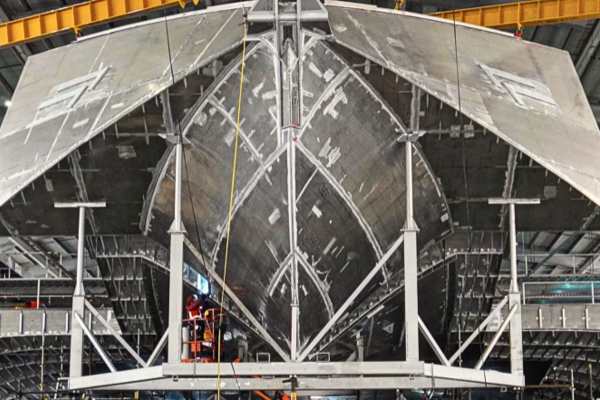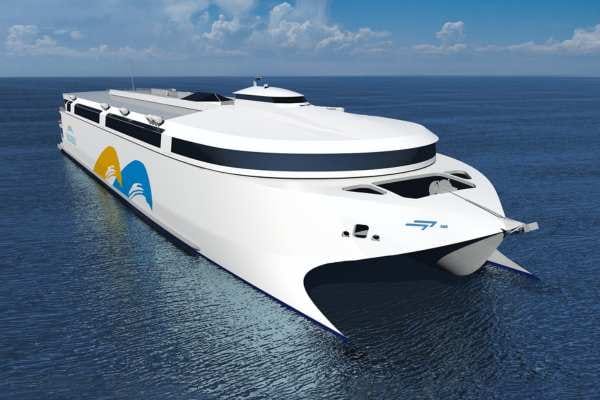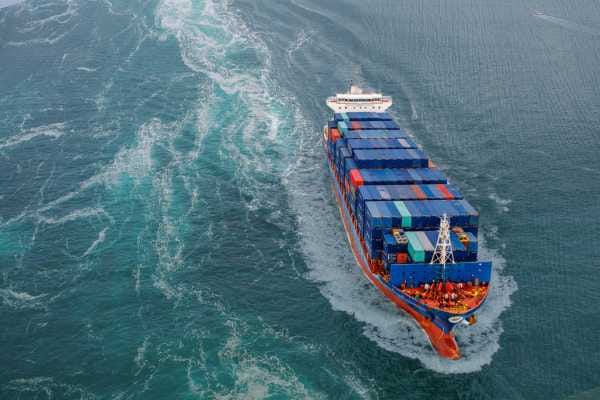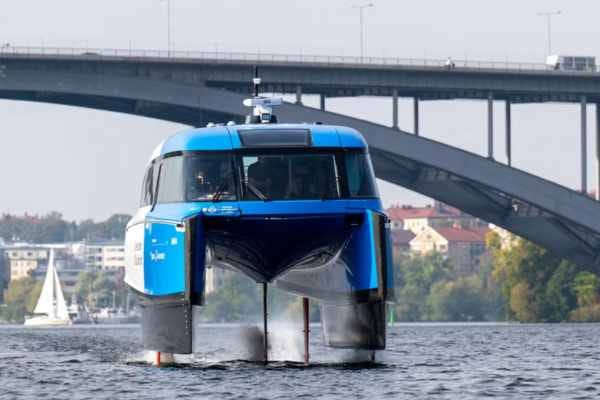Electric ferries bound for Denmark
Two large battery-powered ferries built in Hobart will help decarbonise one of Denmark’s busiest sea routes.

Tasmanian shipbuilder Incat has landed a contract to design and build two large electric ferries for Danish operator Molslinjen.
The vessels, Incat says, will form part of the “world’s largest electrification project at sea”, and will represent a key step in the shift towards zero-emissions sea transport.
Each 129-metre ferry will operate on the Kattegat route between Denmark’s Jutland and Zealand powered by a 45,000 kWh battery system, with each designed by Incat to carry up to 1,483 passengers and 500 cars and to travel at speeds of more than 40 knots.
Shipping contributes around 3% of global emissions according to the World Economic Forum. Incat says its ferries, once in service, will eliminate thousands of tonnes of CO₂ emissions annually.
"They are part of a new class of high-speed, low-emission ships that are redefining what’s possible at sea."
The new ferries will extend Incat’s growing electric footprint, following on from the May launch of its Hull 096 ferry, which was acquired by South American operator Buquebus, and was ranked as the largest electric vehicle ever constructed.
“These new vessels for Molslinjen mark a turning point not just for Incat but for the global maritime industry,” Incat Chairman Robert Clifford said. “They are part of a new class of high-speed, low-emission ships that are redefining what’s possible at sea.”
The order comes as Incat prepares to expand its production base at Prince of Wales Bay in Tasmania with a view to doubling its capacity and workforce over a three-year period.
“This project aligns perfectly with our strategic vision,” Clifford said. “As global demand for sustainable ferries accelerates, our expanded facilities will ensure we’re ready to lead the way in both innovation and volume.”
Construction of Molslinjen's electric ferries is set to begin in coming months, with the first vessel due for delivery in late 2027.
Incat’s upcoming ferries for Danish operator Molslinjen will each be powered by a battery system of 45,000 kWh. According to the company, these vessels will operate at speeds exceeding 40 knots while carrying 1,483 passengers and 500 vehicles across Denmark’s busy Kattegat route. The electric ferries are based around a lightweight design to boost their efficiency and will build on previous projects, including the recently launched Hull 096 – a 130-metre-long, fully electric ship constructed for South American firm Buquebus.
Related stories











